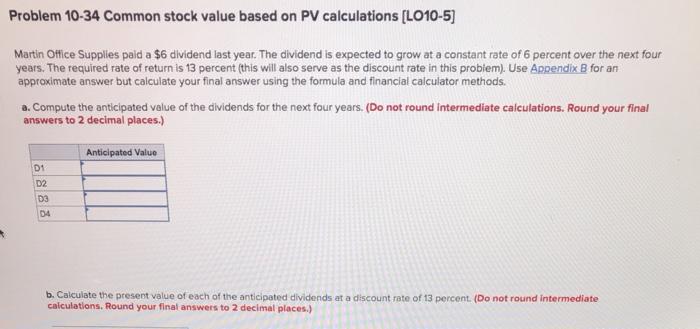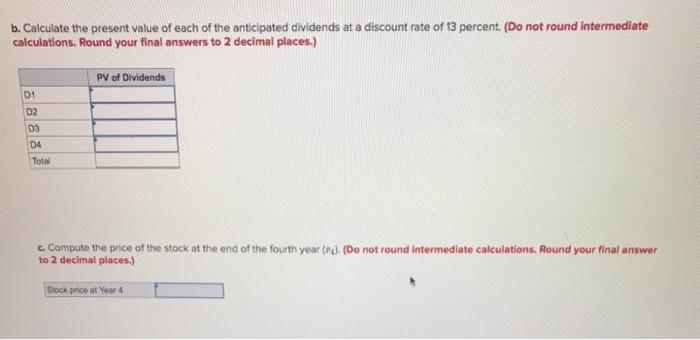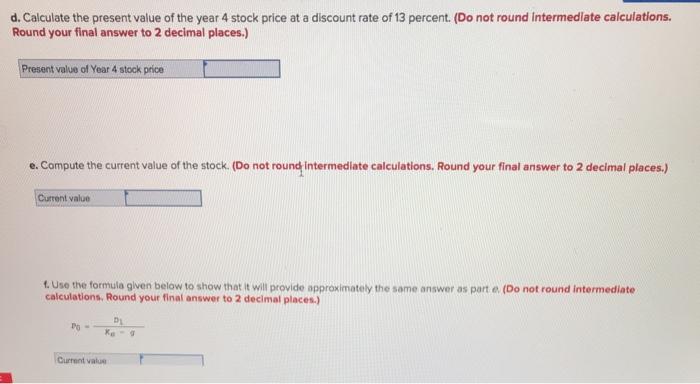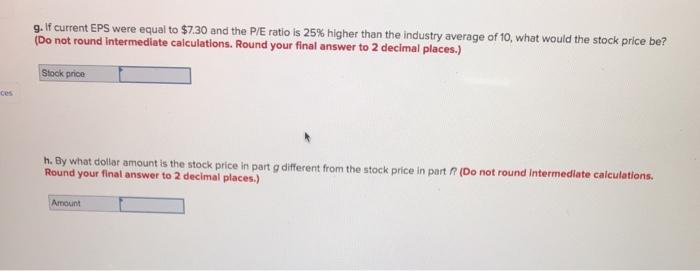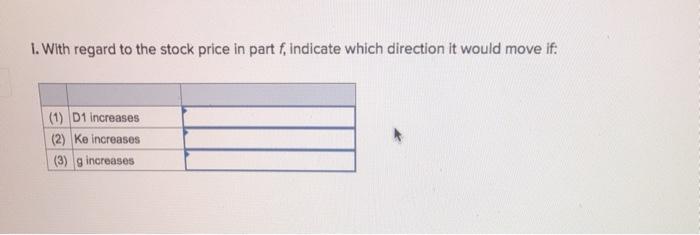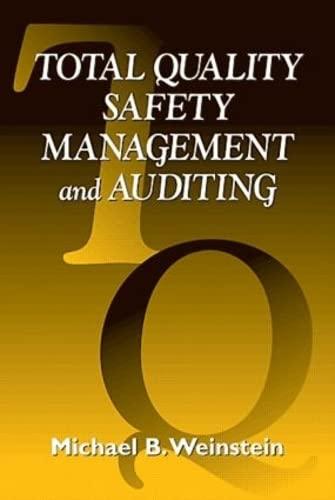Problem 10-34 Common stock value based on PV calculations (L010-5) Martin Office Supplies paid a $6 dividend last year. The dividend is expected to grow at a constant rate of 6 percent over the next four years. The required rate of return is 13 percent (this will also serve as the discount rate in this problem). Use Appendix B for an approximate answer but calculate your final answer using the formula and financial calculator methods. a. Compute the anticipated value of the dividends for the next four years. (Do not round intermediate calculations. Round your final answers to 2 decimal places.) Anticipated Value D1 D2 D3 04 b. Calculate the present value of each of the anticipated dividends at a discount rate of 13 percent. (Do not round Intermediate calculations. Round your final answers to 2 decimal places.) b. Calculate the present value of each of the anticipated dividends at a discount rate of 13 percent. (Do not round Intermediate calculations. Round your final answers to 2 decimal places.) PV of Dividends 01 02 D3 D4 Tot c. Compute the price of the stock at the end of the fourth year (04). (Do not round Intermediate calculations. Round your final answer to 2 decimal places.) Stock price at Your 4 d. Calculate the present value of the year 4 stock price at a discount rate of 13 percent. (Do not round Intermediate calculations. Round your final answer to 2 decimal places.) Present value of Year 4 stock price e. Compute the current value of the stock. (Do not round Intermediate calculations. Round your final answer to 2 decimal places.) Current value 1. Use the formula given below to show that it will provide approximately the same answer as parte (Do not round Intermediate calculations, Round your final answer to 2 decimal places.) D Po ke Current value g. If current EPS were equal to $7.30 and the P/E ratio is 25% higher than the industry average of 10, what would the stock price be? (Do not round Intermediate calculations. Round your final answer to 2 decimal places.) Stock price h. By what dollar amount is the stock price in parte different from the stock price in part 1 (Do not round Intermediate calculations. Round your final answer to 2 decimal places.) Amount 1. With regard to the stock price in part f, indicate which direction it would move if. (1) D1 increases (2) Ke increases (3) g increases
